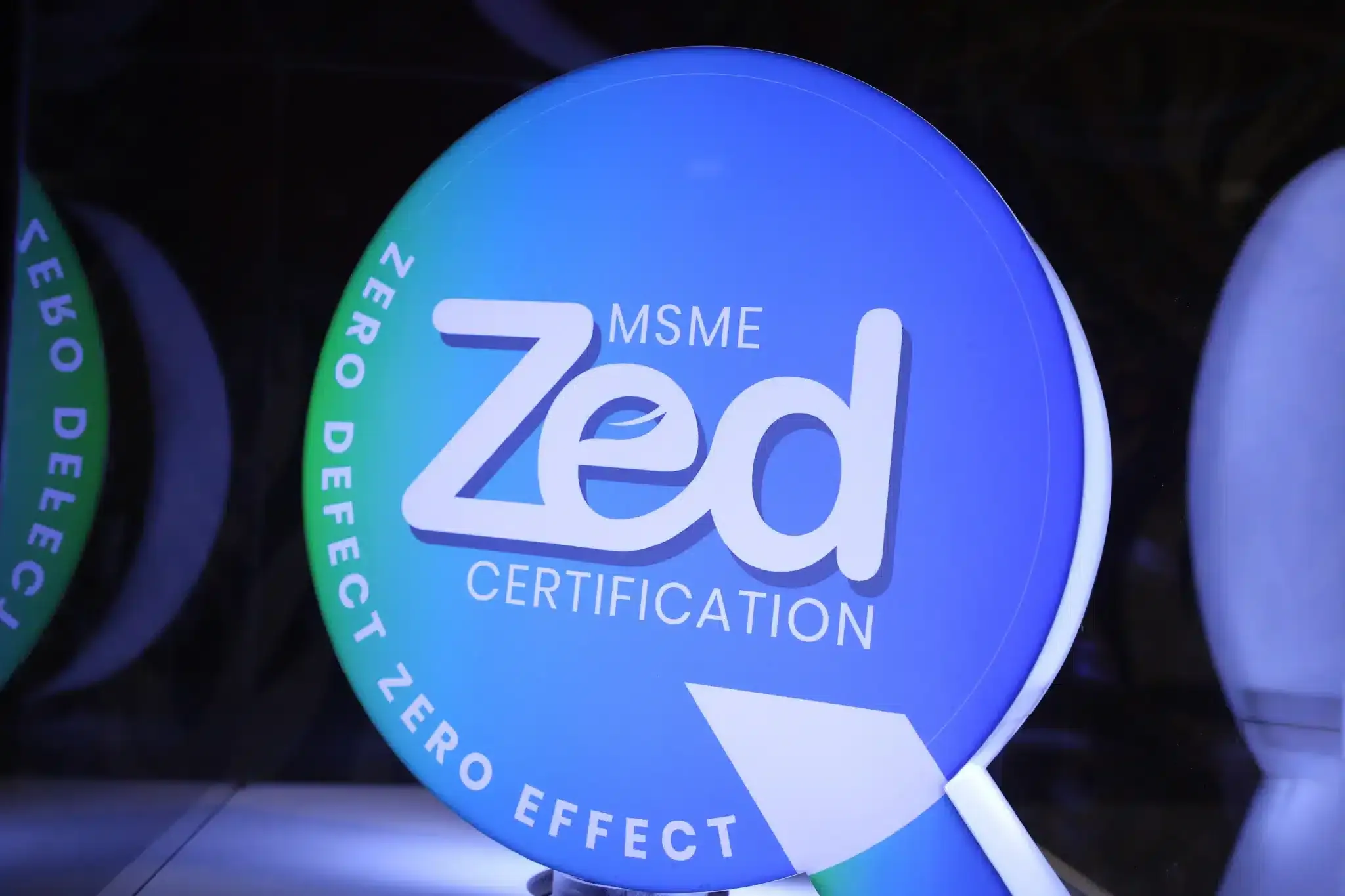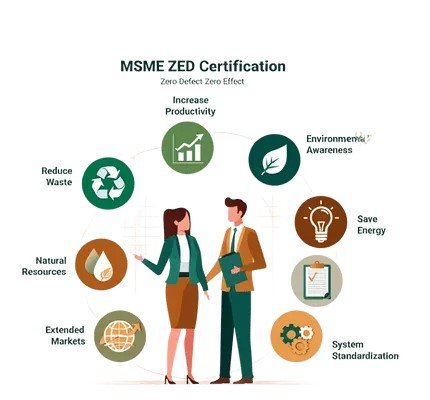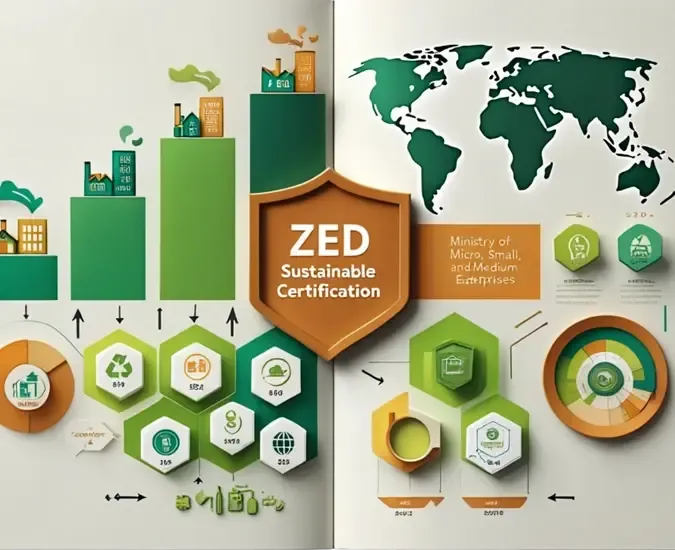
ZED & MSMEs: What’s New in 2025?
The recent surge in ZED Certification adoption, the launch of ZED 2.0, and proactive efforts by both central and state governments signal a major transformation in how Micro, Small, and Medium Enterprises (MSMEs) in India are expected to operate. These trends are not just policy shifts — they represent real opportunities for MSMEs to thrive, and for consulting firms like Auspicious Business Solutions (ABS) to add immense value.
Let’s break down why these developments are critically important:
1. ZED Is Becoming the New Norm, Not Just an Option
With over 5 lakh MSMEs registering and more than 3.3 lakh already certified, ZED is no longer a niche initiative — it’s becoming a national standard. MSMEs that ignore this trend risk falling behind competitors in:
-
Market credibility
-
Government support access
-
Supply chain eligibility (especially in exports or PSU procurement)
For MSMEs: Getting certified now ensures they stay ahead of compliance, quality, and environmental benchmarks.
For ABS: As more businesses rush to get certified, ABS becomes the go-to partner for those seeking speed, accuracy, and maximum subsidy benefits.
2. ZED 2.0 Offers Higher Incentives, Simpler Compliance
The government has significantly simplified the process under ZED 2.0 — reducing documentation, covering more sectors (including service MSMEs), and offering more financial support per enterprise.
-
From ₹10,000 onboarding rewards to ₹5 lakh for consulting and tech upgrades
-
Inclusion of service-sector MSMEs means millions of additional businesses are now eligible
-
Easier certification path with only 20 assessment parameters (vs. 50 earlier)
For MSMEs: ZED is more accessible and financially rewarding than ever before.
For ABS: This simplified approach allows ABS to scale its services to hundreds or thousands of MSMEs, with faster onboarding and delivery.
3. State-Level Custom Incentives Multiply Benefits
States like Gujarat, Punjab, and Odisha offer additional ZED incentives over and above central support — from capital subsidies and equipment grants to freight assistance and testing cost reimbursements.
For MSMEs: This multi-layered support can unlock subsidies worth ₹10–25 lakh or more, depending on location and certification level.
For ABS: Clients often don’t know about state-specific benefits. ABS can bridge this knowledge gap and ensure they get every rupee they’re entitled to.
4. Credit Access & Market Visibility Are Tied to Certification
ZED-certified MSMEs enjoy:
-
Better access to government e-marketplaces (GeM)
-
Interest rate concessions from banks like SBI and Yes Bank
-
Preferential treatment in PSU and export procurement
For MSMEs: Certification is not just about quality — it’s also about becoming financially and commercially competitive.
For ABS: Positioning certification as a growth tool, not just a compliance checkbox, makes ABS a strategic partner, not just a vendor.
5. Trend Momentum = Trust Opportunity
The Indian government is clearly committed to scale ZED to 1 million MSMEs, and campaigns like Gunvatta Sankalp Yatra show that quality is a national priority.
For MSMEs: Adopting early puts them in the top tier of future-ready businesses.
For ABS: As an early mover already specializing in ZED since its inception, ABS gains credibility as a trusted, experienced advisor — which leads to more referrals, stronger partnerships, and even recognition from industry bodies.









